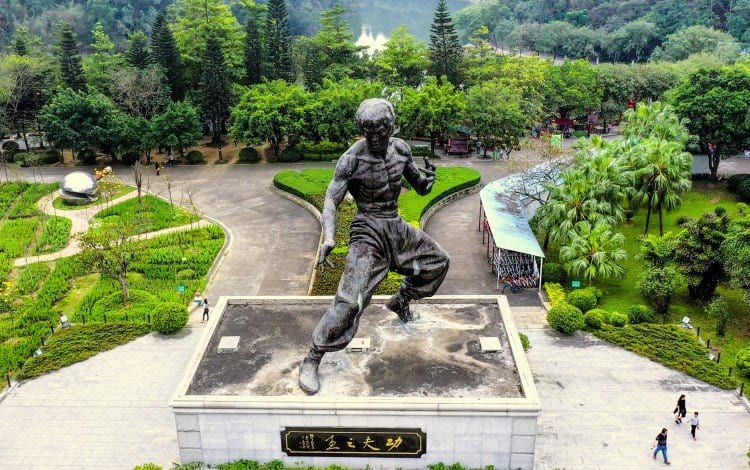
Editor's Note: Beginning today, we will be publishing excerpts from The Bruce Lee Code (Career Press), a new book from TheStreet writer/editor Thomas Lee. The book examines how Lee's life and words can inspire entrepreneurs and career-minded professionals. The Bruce Lee Code, which launches April 3, is available to purchase here.
If Bruce Lee had specifically written a vision statement for his businesses, it would probably look something like this: To integrate the East and West by promoting Chinese culture and ideas to the world through the teaching and practice of kung fu.
When Lee first arrived in the United States, he quickly realized that the country had little knowledge of kung fu.
“Bruce had a pretty clear idea of the kind of future he wanted,” his wife Linda wrote. “[And he knew] how he was going to achieve it and how to reconcile his ambitions and dreams and whatever success came his way with the underlying principles of kung fu.”
Lee felt that kung fu was not only superior to other martial art forms, but that styles like karate and judo actually originated from it. Given his extensive training in wing chun under Ip Man, Lee believed he was the man to educate Americans about the ancient art.
In a letter to friend Pearl Tso, he wrote: "Kung fu is the best of all martial art; yet the Chinese derivatives of judo and karate, which are only basics of kung fu, are flourishing all over the U.S. This so happens because no one has heard of this supreme art; also there are no competent instructors...I believe my long years of practice back up my title to become the first instructor of this movement."
Even more remarkable, Bruce Lee foresaw the possibilities of opening mainland China to the global economy years before the country did so.
'Something new might grow'
In November 1971, during Bruce Lee’s only English-language television interview, Canadian host Pierre Berton asked him what he thought of President Richard Nixon’s plans to reach out to China. Specifically, Berton wondered if improved relations between the United States and China would help American audiences accept him as a leading star.
"I do think things of Chinese will be interesting for the next few years," Lee said. "Once the opening of China happens, it will bring more understanding. More things that are different, you know? And maybe in the contrast of comparison, some new thing might grow."
"It’s a very rich period to be in," he continued. "If I were born forty years ago and if I thought in my mind and said: “Boy, I’m going to star in a television series in America,” well, that might be a vague dream. But right now, I think it might be, man."
Lee never got to star in that hypothetical American television series, but his foresight about the potential opportunities that would arise from China/U. S. economic ties proved remarkably accurate.
Vision proved prophetic
In February 1972, two months after the Berton interview, Nixon visited China, paving the way for the United States and China to establish full diplomatic relations at the end of the decade.
Today, China is the world’s second largest economy, with an annual gross domestic product of nearly $15 trillion, second only to the United States.
An aspect of this growth that would have been especially relevant to Lee is that China has overtaken North America as the world’s largest box office.







